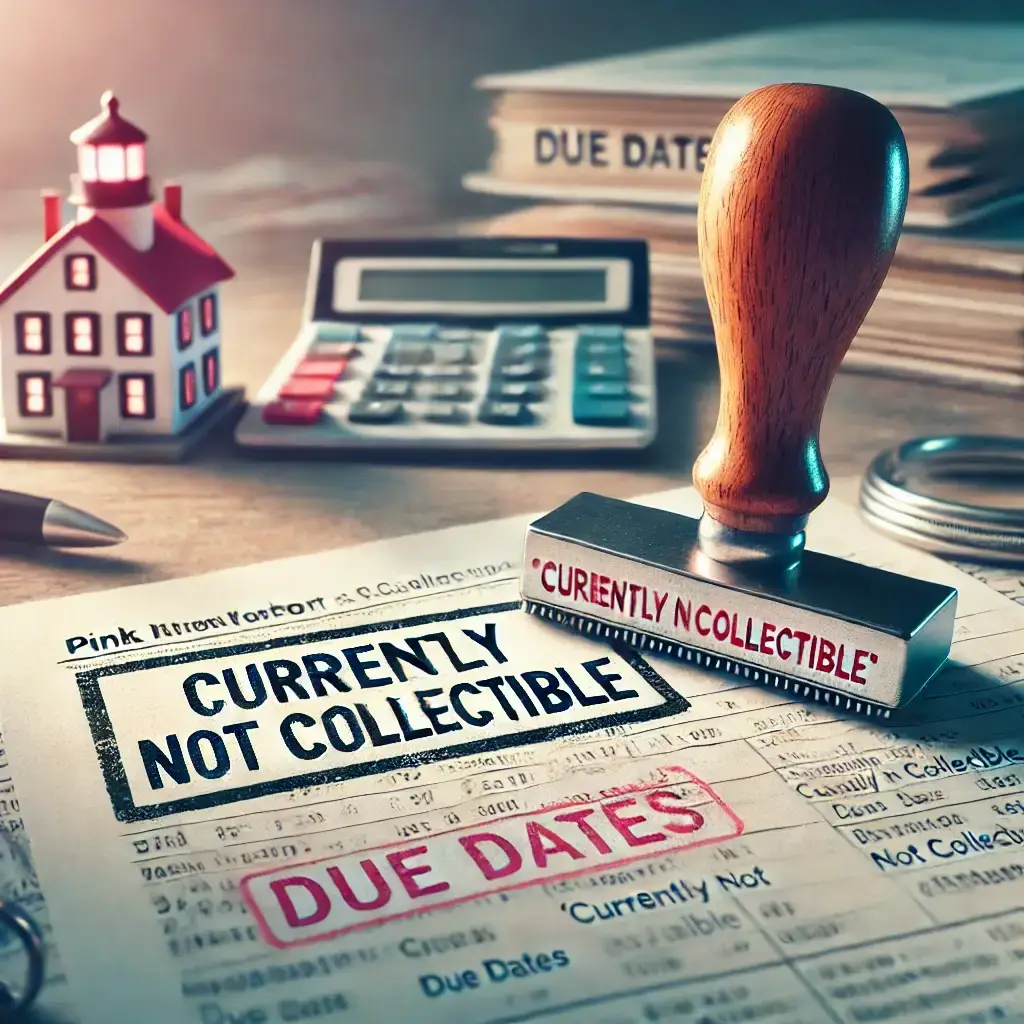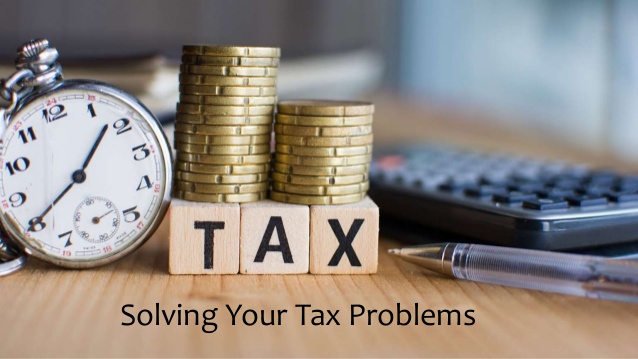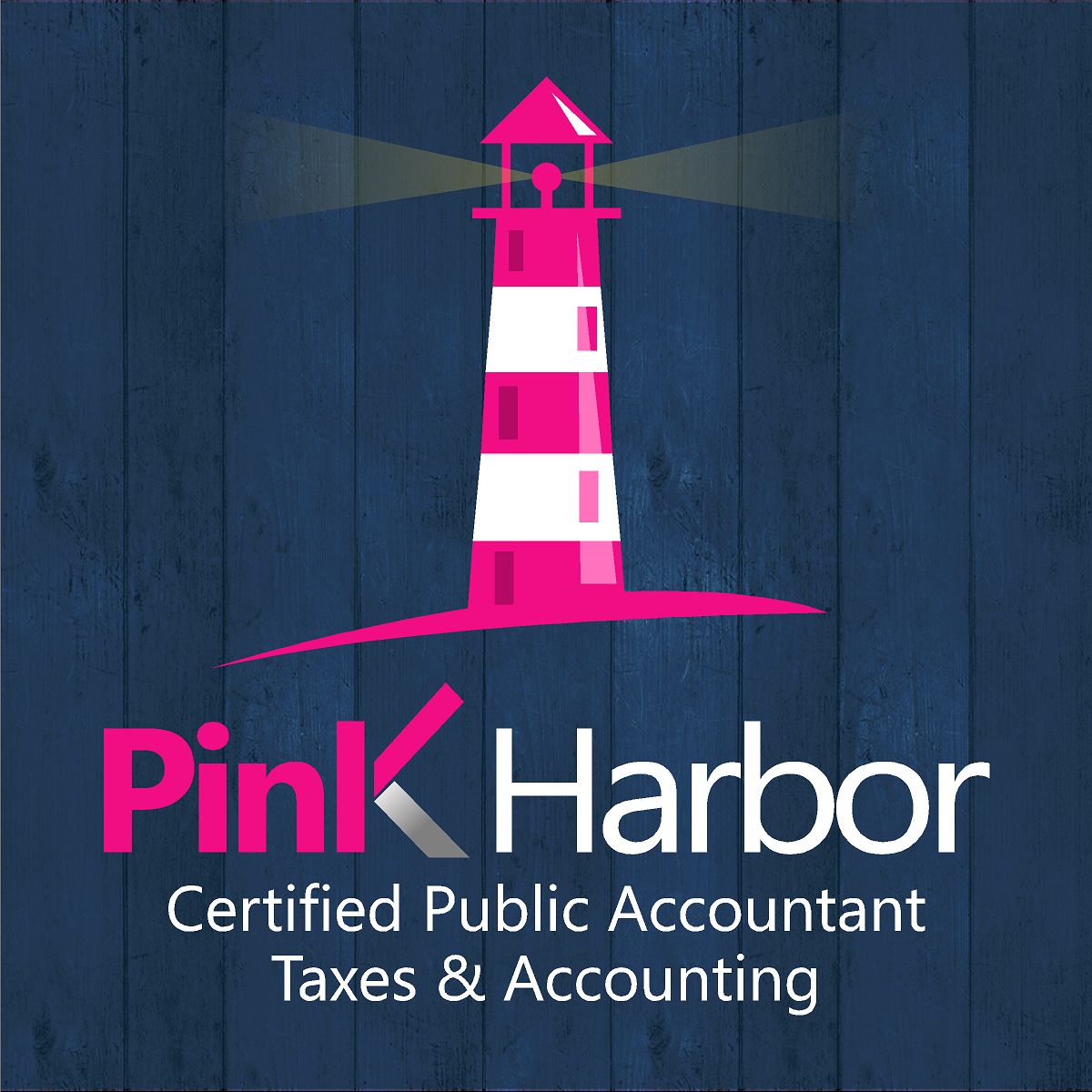
375 North Main Street Suite A-5
Williamstown NJ 08094
(856) 226-9524
mike@pinkharbor.com
Mon - Fri 9 AM - 5 PM
Night & Weekend Hours by Appointment

Williamstown NJ 08094
mike@pinkharbor.com
Night & Weekend Hours by Appointment
Struggling to make ends meet while dealing with IRS tax debt? Achieving ‘Currently Not Collectible’ status may provide the relief you need. At Pink Harbor, CPA, we understand that financial challenges can make tax payments overwhelming. This option allows those in financial hardship to halt collection actions until their situation improves temporarily. With our expertise, we’ll guide you through the process, helping you explore if this status fits your needs and ensuring all necessary documentation is completed accurately. Let us help you find a path forward with professional tax support tailored to your circumstances.

IRS Currently Not Collectable (CNC) status with the IRS temporarily suspends IRS collection efforts for the most financially disadvantaged taxpayers.
Currently Not Collectable status with the IRS is a temporary relief option in which the IRS halts collection efforts because the taxpayer cannot pay their tax debt due to financial hardship. Once in place, this status lasts 12 months. Afterward, the status is reevaluated to determine if the financial hardship remains or if the IRS should begin collection efforts again. Learn more from the IRS website.
If you’re facing financial hardship and can’t pay your tax debt, CNC status can temporarily stop IRS collection actions until you’re able to pay. Interest and penalties will still accrue while in CNC status.
Your living expenses must exceed your income. But there are some important caveats to this: The IRS has maximum living expense thresholds that you must be under. This means that if you have a $1200 a month auto expense but the IRS only allows an auto expense for $400 in your geographic area, then you will only get credit for $400.
You can’t have substantial assets that you could liquidate or borrow against to pay the IRS. If you have a house that you can borrow against, the IRS will want you to do that.
Once placed into Currently Not Collectable status, the IRS is technically supposed to reevaluate you every 12 months. The IRS could request that you complete a financial disclosure every year, or they could examine the most recent tax return that you filed and look for any substantial changes they believe would knock you out of CNC.
The IRS could also ignore evaluating your eligibility for CNC status and leave you in it.
Beyond not having to pay the IRS and the IRS not being able to collect the tax liability from you, there is a hidden benefit that is often overlooked. The Collection Statutory Expiration (CSED) does not change. The IRS typically has 10 years from when your tax return was due or filed (whichever is later) to collect on the tax owed.
For example, if you filed your 2023 tax return on March 15, 2024, that return is due April 15, 2024. The IRS would have until April 15, 2034, to collect the tax. If you are placed in Currently Not Collectable status for five of these years, the IRS can still only collect the debt until April 15, 2034.
To get Current Not Collectable Status with the IRS, you should complete a Collection Information Statement using IRS Form 433-F. You should also assemble supporting documentation supporting the disclosures you made on the form, such as bank statements and mortgage statements. You can then contact the IRS to request this status or hire a competent professional to assist you.
Pink Harbor, CPA offers a variety of IRS tax resolution services designed to help you manage and resolve tax issues. Below are some of the most effective solutions available:
| ✔️ IRS Offer-in-Compromise | Settle your tax debt for less than the full amount owed, based on your financial situation. |
| ✔️ IRS Installment Plans | Spread out your tax payments over time with an installment agreement, making it easier to pay off your debt. |
| ✔️ Filing Back Taxes – Tax Compliance | Ensure compliance by filing past-due tax returns and addressing penalties for late filing. |
| ✔️ IRS Innocent Spouse Relief | Avoid liability for tax debt if your spouse is solely responsible for incorrect or fraudulent reporting. |
| ✔️ IRS Injured Spouse Relief | Reclaim your share of a tax refund that was applied to your spouse’s past debts, such as child support or student loans. |
| ✔️ IRS Penalty & Interest Abatement | Reduce or eliminate IRS penalties and interest if you can prove reasonable cause for late payments or filings. |
| ✔️ IRS Currently Not Collectible Status | Temporarily delay IRS collection activities if you are unable to pay your tax debt due to financial hardship. |
Pink Harbor, CPA provides expert help to resolve a wide range of tax issues. Some of the most common problems we can assist with include:
| 🛡️ IRS Audit Representation | Get professional representation during an IRS audit to ensure your rights are protected and you receive fair treatment. |
| 🛡️ IRS Lien Withdrawal | Remove a tax lien placed on your property and restore your financial standing with the IRS. |
| 🛡️ IRS Levy Release | Stop the IRS from seizing your assets, such as bank accounts or wages, to pay off tax debt. |
| 🛡️ IRS Wage Garnishment Release | Protect your paycheck by stopping or reducing wage garnishment by the IRS. |
| 🛡️ IRS Trust Fund Recovery Relief | Resolve tax issues related to unpaid payroll taxes or trust fund penalties, often incurred by business owners. |


Enter your information below for our FREE e-guide “Pink Harbor CPA’s blueprint to resolving your tax problems.”
